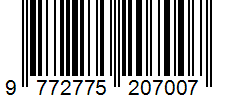Welcome to the official website of Bhirawa Law Journal. With the spirit of further proliferation of knowledge on the legal in Indonesia to the wider communities, this website provides journal articles for free download. Bhirawa Law Journal is a scientific periodical of the Faculty of Law, University of Merdeka Malang, which includes a variety of research in the field of law, or the analysis of actual case studies, or ideas related to the actual law. Bhirawa Law Journal is formed in 2020 and many manuscripts published until recent days. A Scientific periodical is intended as a means of scientific communication and a means of fostering, developing, and strengthening knowledge in the field of law. Academics, legal practitioners, or anyone interested in the field of law may submit his papers to the editor with the guidelines in writing. Coverage includes, but is not limited to Employment and industrial law, Corporate governance and social responsibility, Intellectual property, Corporate law and finance, Insolvency, Commercial law and consumer protection, Environmental law, Taxation, Competition Law, and Regulatory theory. Researchers in all law fields are encouraged to contribute articles based on recent research.
About the Journal
People
Submissions
Editorial Policies
- Focus and Scope
- Publication Frequency
- Privacy Statement
- Open Acces Policy
- Plagiarism Policy
- Copyright Notice
- Archiving
- Peer Review Process
- Publication Ethics
- Competing Interests
Journal Summary
|
Title: Bhirawa Law Journal
ISSN: 2775-4464 (Print) 2775-2070 (Online)
First Online Publication: 2020 Duration: Approx 40 days to the first decission Acceptance Rate: 35% of the total submissions Frequency: 2 (Two) issues per year (May, November) DOI: 10.26905/blj Grade: SINTA 5 Topic: Analysis of actual law studies, or ideas to actual laws in parts of southeast asia with comparisons of laws in the word Publisher: Faculty of Law, University of Merdeka Malang, Indonesia Indexing: SINTA, Doaj, Dimensions, ICI Copernicus, Google Scholar Audience: Legal scholars, Academics, Law enforcers, Lecturers, Students, Practitioners Geographical Diversity: Indonesia, Singapore, US America, England, Malaysia, China, Taiwan, Prancis, and Australia |
Accreditation
![]()
It has been nationally accredited by the Ministry of Research, Technology, and Higher Education of Indonesia.
ISSN Number
![]()
![]()
Bhirawa Law Journal, with registered number ISSN Online ISSN 2775-2070 | Print ISSN 2775-4464 | DOI 10.26905 by crossref |
Focus and Scope

The main focus of Bhirawa Law Journal is problems in the development of the sciences of coverage includes, but is not limited to:
- Employment and industrial law
- Corporate governance and social responsibility
- Intellectual property
- Corporate law and finance
- Commercial law and consumer protection
- Environmental law
- Taxation
- Competition law
- Regulatory theory
- Constitution
- Comparative law
- Law and society
Publication Frequency

Bhirawa Law Journal publishes two times in a year i.e. May, November.
Privacy Statement
![]()
The names and email addresses entered in this journal site will be used exclusively for the stated purposes of this journal and will not be made available for any other purpose or to any other party.
Open Acces Policy
![]()
Bhirawa Law Journal is loyal to open access for academic work. All the original articles and review papers published in this journal are free to access immediately from the date of publication. We don’t charge any fees for any reader to download articles. Bhirawa Law Journal provides immediate open access to its content on the principle that making research freely available to the public supports a greater global exchange of knowledge.
Plagiarism Policy

In this publication, Bhirawa Law Journal strongly opposes plagiarism because of its own abilities. Bhirawa Law Journal is committed to blocking plagiarism, including self-plagiarism.
The author must ensure that the author has written the original work fully if the author has used the work and/or words of others who have been quoted correctly, and if found indications of plagiarism (above 25%) in the text, then Bhirawa Law Journal automatically has the right to reject the manuscript. Bhirawa Law Journal strongly recommends, too, an important part of the manuscript before it is published. The author also appreciates writing in Bhirawa Law Journal about publications, duplicates, or excessive fraud.
Before the author submits the manuscript to Bhirawa Law Journal at least to examine the use of plagiarism. When submitting articles published for authenticity checks, Bhirawa Law Journal recommends the use of Turnitin, a Scanner from Turnitin. Before using Turnitin Plagiarism for the first time, we strongly recommend that the writer read the instructions for using this plagiarism detector. The plagiarism detection system for Bhirawa Law Journal uses and is affiliated with Turnitin.
* Please note that the Bhirawa Law Journal is affiliated with Turnitin. *
The article has not been published in other media and does not contain plagiarism. Preferably the author must use reference management software, for example, Mendeley. Bibliography and reference system for Bhirawa Law Journal using Mendeley.
Copyright Notice
Authors who publish in this journal agree to the following terms: Bhirawa Law Journal is licensed under Creative Commons Attribution-ShareAlike 4.0 International. Creative Commons Attribution-ShareAlike 4.0 International License (CC BY 4.0) is applied when mandated by research funders, such as those who have signed. Open Access articles in Bhirawa Law Journal are published under the Creative Commons Attribution-Share Alike 4.0 International (CC BY 4.0) license. The copyright of the received article shall be assigned to the journal as the publisher of the journal. The intended copyright includes the right to publish the article in various forms (including reprints). The journal maintains the publishing rights to the published articles. Authors must agree to the copyright transfer agreement by checking the Copyright Notice column at the initial stage when submitting the article.
Archiving

Bhirawa Law Journal, utilizes the LOCKSS system to create a distributed archiving system among participating libraries and permits those libraries to create permanent archives of the journal for purposes of preservation and restoration. More...
Peer Review Process
![]()
Every article submitted to the editor will be received first by the staff editor then selected the selection editor for the next stage. the next stage through the Initial Review process by the selection Editor. The selection editor will continue the article to the reviewer stage and sent it to the editorial board and the executive editor will follow the next selection of the Review Process stage. After that, the article of the review process will be sent to the selection editor to be received or returned to the author for revision. This process takes a month for a maximum time. In each manuscript, the editorial board and peer reviewers will be assessed from substantial and technical aspects.
All submitted manuscripts are read by editorial staff. the manuscript evaluated by the editor becomes incompatible with journal criteria rejected immediately without any external reviews. The manuscript evaluated to be a potential interest for our readers is sent to two reviewer desks. The editor then makes a decision based on reviewers' recommendations of several possibilities: rejected, revision required, or accepted. The editor has the right to decide which manuscripts submitted to the journal should be published.
Review Process:
- The author submits the script
- Editor's Evaluation (some manuscripts denied or returned before the review process)
- Double-blind peer review process
- Editor's Decision
- Confirm to an author
Publication Ethics
Our ethic statements are based on COPE’s Best Practice Guidelines for Bhirawa Law Journal.

Multiple, Redundant, or Concurrent Publication
Authorship should be limited to those who have made a significant contribution to the conception, design, execution, or interpretation of the reported study. All those who have made significant contributions should be listed as co-authors. Where there are others who have participated in certain substantive aspects of the research project, they should be acknowledged or listed as contributors.
Competing Interest Guidelines
In the interests of transparency and to help readers form their own judgements of potential bias, Caraka Tani journals' require reviewers (in the process of peer review) and authors (in the Author Declaration) to declare any competing financial and/or non-financial interests in relation to the work described. The corresponding author is responsible for submitting a competing interests' statement on behalf of all authors of the paper.
Definition
For the purposes of this policy, competing interests are defined as financial and non-financial interests that could directly undermine, or be perceived to undermine the objectivity, integrity and value of a publication, through a potential influence on the judgements and actions of authors with regard to objective data presentation, analysis and interpretation.
Financial competing interests
Financial competing interests include (but are not limited to):
- Receiving reimbursements, fees, funding, or salary from an organization that may in any way gain or lose financially from the publication of the article, either now or in the future.
- Holding stocks or shares in an organization that may in any way gain or lose financially from the publication of the article, either now or in the future.
- Holding, or currently applying for, patents relating to the content of the manuscript.
- Receiving reimbursements, fees, funding, or salary from an organization that holds or has applied for patents relating to the content of the manuscript.
Non-financial competing interests
Non-financial competing interests include (but are not limited to) political, personal, religious, ideological, academic, and intellectual competing interests.
Example competing interest statements:
I/We have no known competing financial interests or personal relationships that could have appeared to influence the work reported in this paper.
Author Fees

This journal charges the following author fees.
Article Publication: 500.000 (IDR)
If this paper is accepted for publication, you will be asked to pay an Article Publication Fee to cover publications costs.
If you do not have funds to pay such fees, you will have an opportunity to waive each fee. We do not want fees to prevent the publication of worthy work.
Indexing

Bhirawa Law Journal has been indexing:
- Science and Technology Index (SINTA 5)
- Garba Rujukan Digital (Garuda)
- Google Scholar
- Dimensions
- Index Copernicus International (ICI)
Journal History








